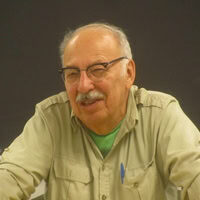The Martin A. Klein Prize in African History recognizes the most distinguished work of scholarship on African history published in English during the previous calendar year. The books must focus primarily on continental Africa (including those islands usually treated as countries of Africa). Eligibility will otherwise be defined quite broadly, to include books on any period of African history and from any disciplinary field that incorporates an historical perspective. In making its selection, the prize committee will pay particular attention to methodological innovation, conceptual originality and literary excellence. Works that reinterpret old themes or develop new theoretical perspectives are welcome.
The current prize amount is $1,000.
The general rules for submission are:
- Anthologies, encyclopedias, and other edited volumes will not be considered.
- Books with a copyright of 2025 are eligible for the 2026 award.
- Nomination submissions may be made by an author or by a publisher. Publishers may submit as many entries as they wish. Authors or publishers may submit the same book for multiple AHA prizes.
- Nominators must complete an online prize submission form for each book submitted. Once you fill out the form you will receive an email with the committee’s contact information.
- One copy of each entry must be sent to each committee member and clearly labeled “Klein Prize Entry.” Print copies preferred unless otherwise indicated. If only e-copy is available, please contact review committee members beforehand to arrange submission format.
Please Note: The competition will open in mid-March 2026. Entries must be received by May 15, 2026, to be eligible for the 2026 competition. Entries will not be returned. Recipients will be announced on the AHA website in October 2026 and recognized during a ceremony at the January 2027 AHA annual meeting in New Orleans.
For questions, please contact the Prize Administrator.

Martin A. Klein
The prize is named for Martin A. Klein, who is currently professor emeritus of history at the University of Toronto. Funding for the prize was completed thanks to a substantial donation from the late Dr. Mougo Nyaggah of California State University, Fullerton, and his wife Dr. Lynette Nyaggah. Mougo Nyaggah was Klein’s first graduate student at the University of California, Berkeley. Nyaggah credited the completion of his doctorate to Klein’s mentoring, guidance, enthusiasm, and commitment to the research and teaching of African history. He observed that, “There are many Martins who have or will mentor and inspire many Africanist students in American universities. Those mentors will be honored by this prize for their human and scholarly contribution.”
Past Recipients
Current Recipient
Admire Mseba, University of Southern California
Society, Power, and Land in Northeastern Zimbabwe, ca. 1560–1960 (Ohio Univ. Press)
In Society, Power, and Land in Northeastern Zimbabwe, Admire Mseba offers a deeply researched, elegantly written examination of land and power in Zimbabwe over a longue duree, showing how contemporary inequalities are rooted in older social, political, economic, and environmental dynamics rather than simply emerging from colonial dispossession. With impressive methodological range and conceptual clarity, the book brings fresh insights to a long-standing historiographical debate about land in Africa.